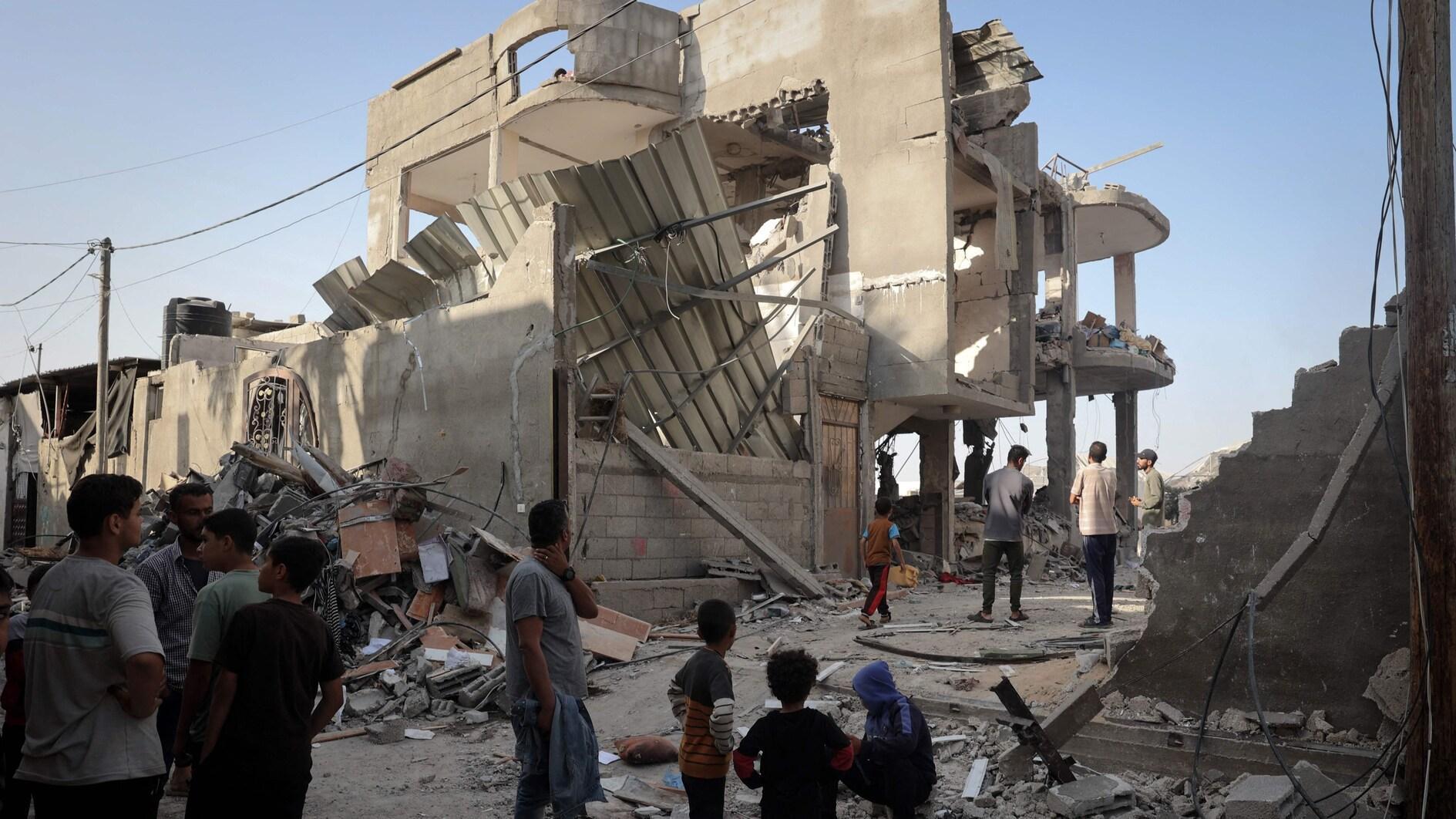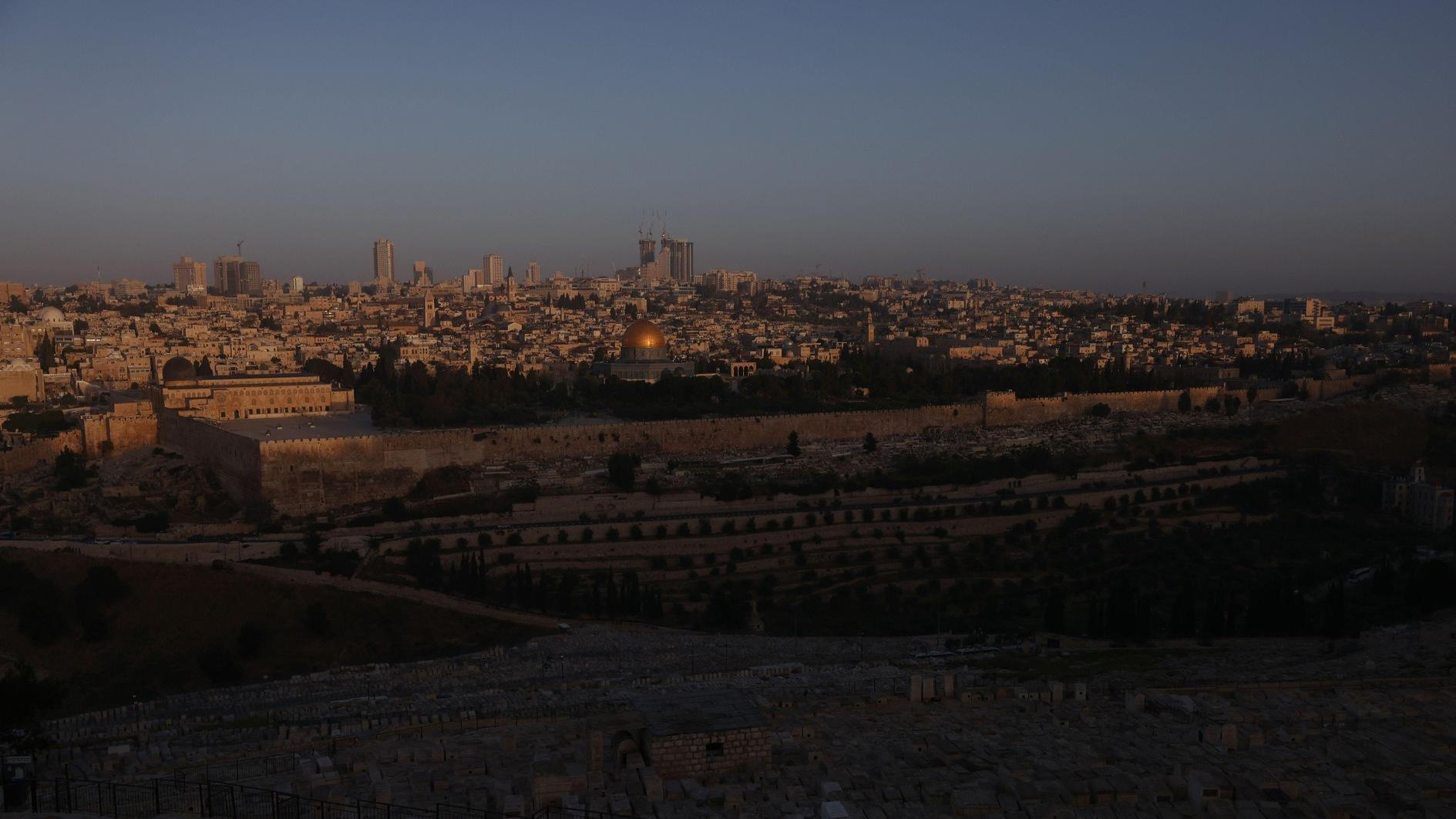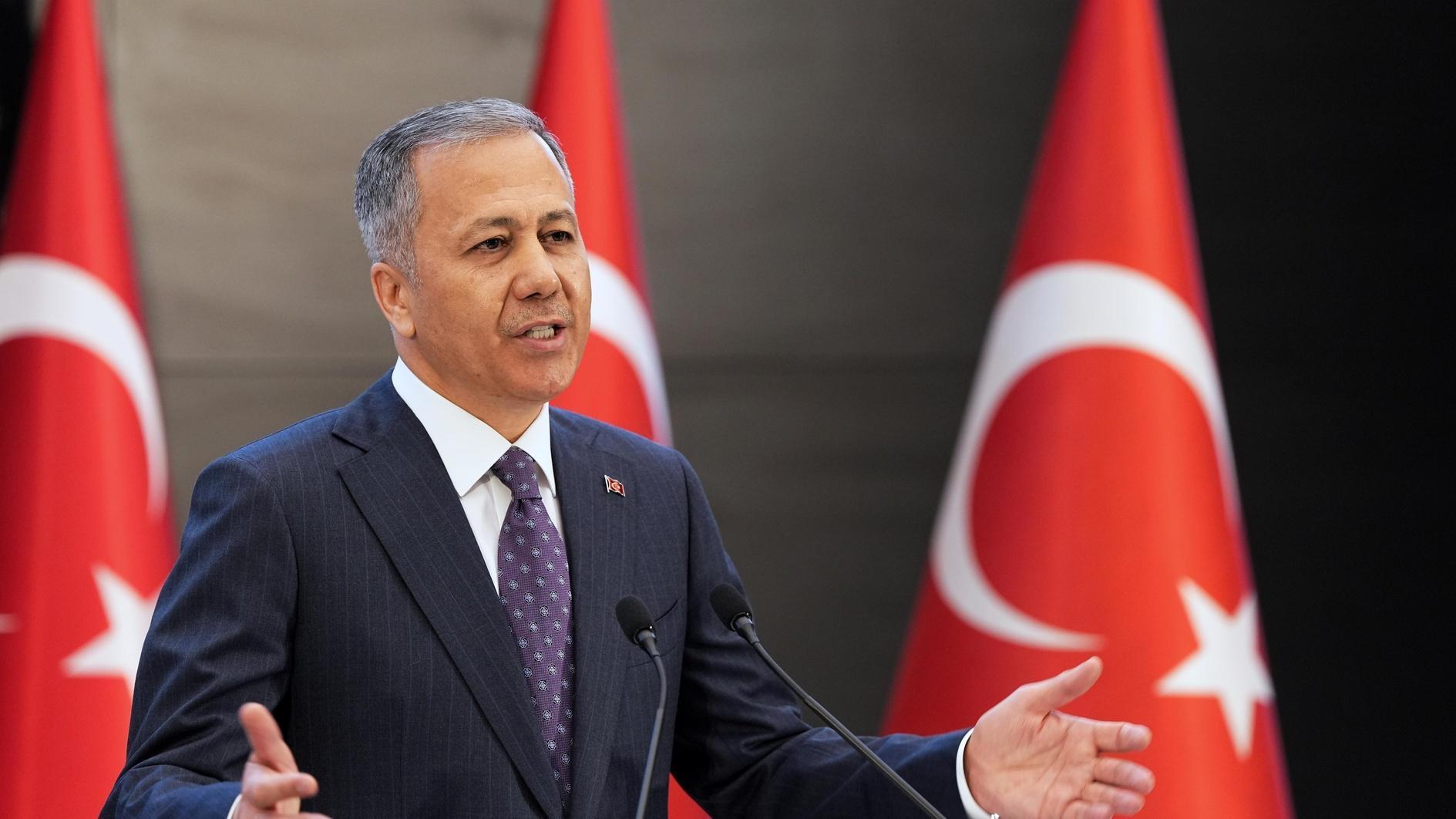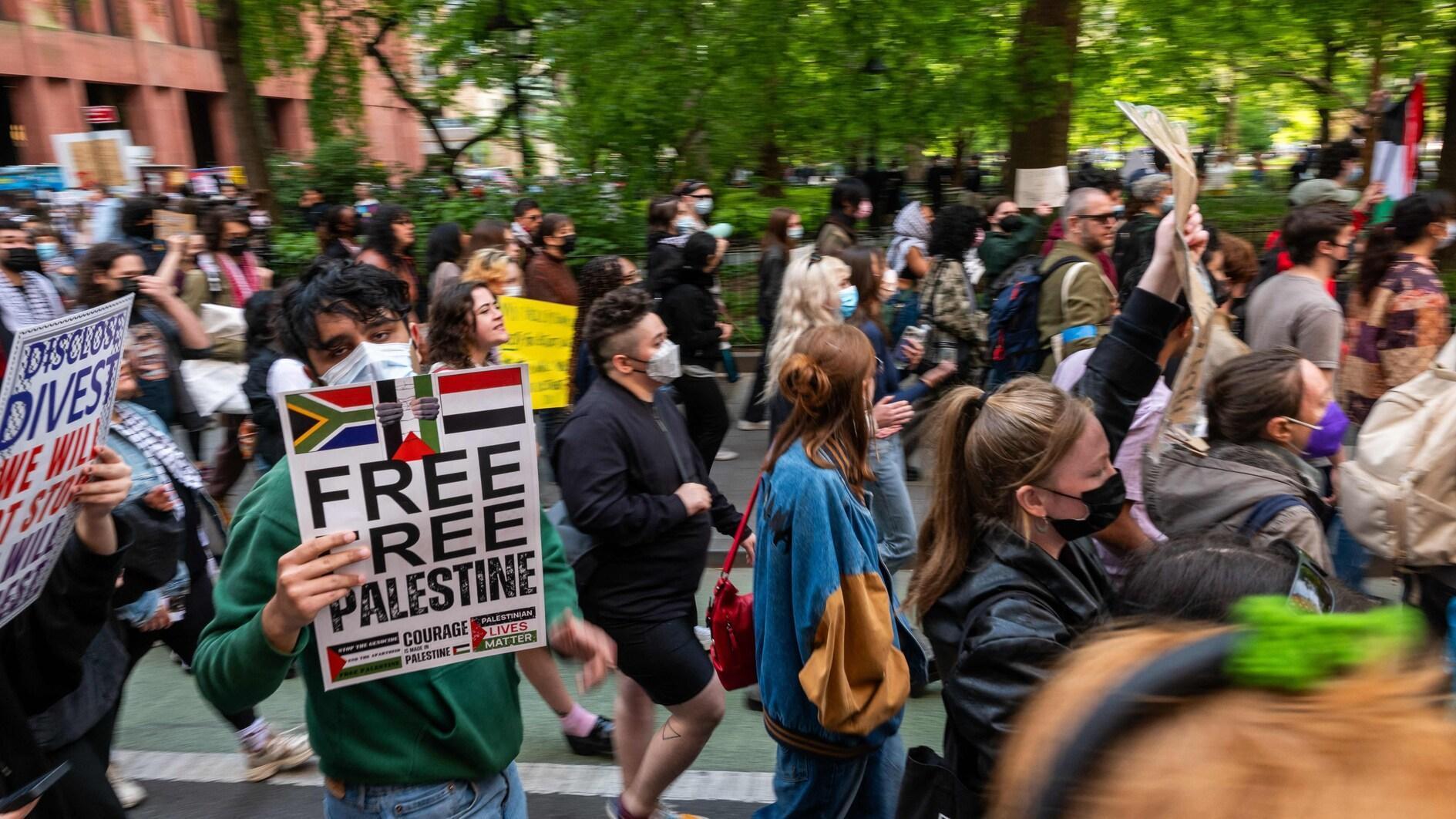Medvedev seeks unity in parliamentary polls
MOSCOW
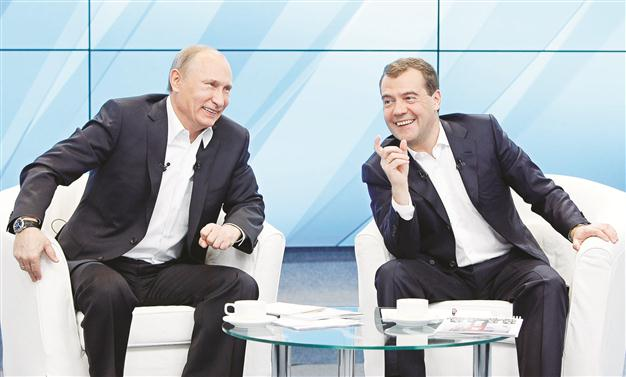
Russia’s President Dmitry Medvedev (R) and Prime Minister Vladimir Putin smile while speaking to their supporters in Moscow, Russia. AP photo
Russian President Dmitry Medvedev made a final push to ensure ruling party United Russia keeps its dominance in legislative polls, saying the country needed a stable parliament untroubled by divisions.Medvedev is heading the party list for United Russia in Dec. 4’s elections and opinion polls have shown that while it is still almost certain to keep a majority in parliament, its support may be eroding after years of dominance.
In an address to the nation being broadcast across the country’s nine time zones, Medvedev made clear he did not want to see a squabbling and tightly contested parliament of the kind Russia had in the 1990s under Boris Yeltsin.
He said Russia needed a “credible legislative organ where the parliament majority carries out responsible politics capable of helping raise the quality of life of our people.” He spoke out against electing a parliament “that is torn by irreconcilable contradictions and is not capable of deciding anything, which unfortunately we have already had in our history.”
Independent pollster Levada Center said last week that United Russia will receive 53 per cent of the vote, down from 64 per cent it got in the 2007 vote. While still a majority, this would deprive the pro-Kremlin behemoth of the two-thirds majority that has allowed it to amend the constitution.
The poll also predicts that the Communist Party’s share of the vote will rise to 20 percent from less than 12 percent in 2007, as well as an uptick for two other smaller parties in parliament: the nationalist Liberal Democratic Party and Just Russia, a party established with Kremlin support to lure votes from the Communists. Only seven Kremlin-approved parties have been allowed to field candidates this year, while the most vocal opposition groups have been denied registration and barred from campaigning.



